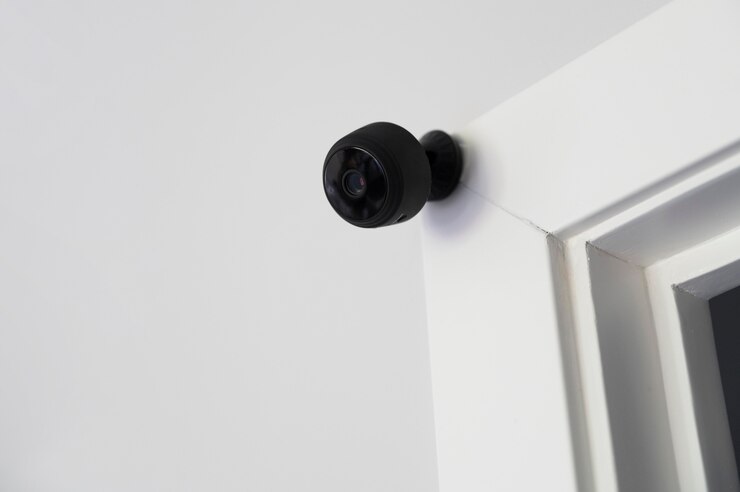The primary use of CCTV is to monitor and record activities in a specific area. It provides surveillance and security for both public and private spaces.
CCTV, or closed-circuit television, is commonly used for security and surveillance purposes. These systems utilize cameras and video recorders to monitor and record activities in various locations, including homes, businesses, and public areas like roads and parks. The footage obtained from CCTV cameras can be used for investigation, evidence, and to deter criminal activities.
Additionally, CCTV systems are also employed for monitoring traffic, observing industrial processes, and ensuring safety in high-security areas. The technology behind CCTV has evolved significantly, with the development of digital and network-based systems, providing even more advanced features for effective surveillance and security measures.

Credit: en.wikipedia.org
Understanding CCTV Technology
Closed-circuit television (CCTV) technology revolutionized the way we monitor and secure various spaces. Understanding this technology is crucial for its effective implementation. Whether for personal or commercial use, CCTV plays a crucial role in surveillance, security, and monitoring. This section will delve into the workings of CCTV systems, the various types available, and the benefits they offer.
How CCTV Works
CCTV systems function through a network of cameras, monitors, and recording devices. Cameras, often connected to a central recording station, capture video footage of the area under surveillance. This footage can then be watched live or stored for later viewing or analysis. Monitoring can be done in real-time or accessed remotely through digital devices. The surveillance video feed is typically displayed on monitors or screens, providing real-time visuals of the secured area.
Types Of CCTV Systems
CCTV systems come in various types to suit diverse surveillance needs. These include analog, IP-based, wireless, and night vision cameras. Analog cameras are more traditional and transmit footage directly to a recorder. IP-based cameras, on the other hand, use the internet network for data transmission. Wireless cameras offer the flexibility of installation without the need for extensive wiring, while night vision cameras provide clear monitoring in low-light conditions.
Benefits Of CCTV Surveillance
CCTV surveillance offers numerous advantages, including crime prevention, enhanced safety, evidence collection, and monitoring efficiency. With the ability to deter criminal activities and facilitate timely intervention, CCTV systems provide an added layer of security for both residential and commercial properties. Additionally, they can aid in post-incident analysis and investigation, serving as valuable evidential support. The surveillance footage can also help in monitoring and optimizing operational processes, leading to increased efficiency.

Applications Of CCTV
Closed-circuit television (CCTV) has various applications across different industries and sectors. From enhancing security to managing traffic and monitoring workplace activities, CCTV systems have become an integral part of modern-day surveillance and management. Let’s explore the primary applications of CCTV in detail.
Security And Crime Prevention
CCTV systems play a pivotal role in enhancing security in public spaces, residential areas, commercial properties, and government facilities. By monitoring and recording activities, these systems deter criminal behavior, prevent vandalism, and assist law enforcement in investigating incidents. High-quality footage captured by CCTV cameras serves as crucial evidence in identifying perpetrators and ensuring public safety.
Traffic Monitoring And Management
Traffic monitoring is another vital application of CCTV technology. Integrated with intelligent software, CCTV cameras enable real-time monitoring of traffic flow, congestion identification, and incident management. Local authorities utilize CCTV footage to optimize signal timings, implement effective traffic management strategies, and enhance overall road safety. Furthermore, these systems aid in enforcing traffic regulations by capturing violations such as speeding and improper lane usage.
Workplace Surveillance
In the realm of workplace surveillance, CCTV systems are widely employed to ensure employee safety, prevent theft, and monitor productivity. Employers utilize these systems to mitigate security risks, detect unauthorized access, and maintain a secure working environment. Additionally, CCTV footage serves as a tool for observing employee conduct, evaluating operational processes, and resolving disputes, thereby contributing to overall organizational efficiency.
Legal And Ethical Considerations
Privacy Laws And Regulations
CCTV systems are subject to strict privacy laws and regulations to protect individuals’ rights. Privacy laws govern the collection, storage, and use of video footage to prevent unauthorized access and ensure data security. Businesses and organizations must adhere to these laws to avoid legal repercussions related to privacy breaches and data protection violations.
Ethical Use Of CCTV
Ethical considerations play a crucial role in the use of CCTV systems. It’s imperative for organizations to use surveillance cameras responsibly and transparently, ensuring that individuals’ privacy is respected. Additionally, proper handling of footage and adherence to established ethical guidelines are essential to maintain public trust and confidence in the ethical use of CCTV.
Impact On Civil Liberties
The widespread deployment of CCTV systems has raised concerns about their potential impact on civil liberties. While these systems contribute to public safety and security, there are apprehensions regarding the potential intrusion of privacy. Impact on civil liberties must be carefully monitored to strike a balance between security measures and individual rights, preventing the misuse of CCTV for unwarranted surveillance or privacy violations.
Maintenance And Best Practices
Installation And Placement
Proper installation and placement of CCTV cameras are crucial for effective monitoring. Install cameras strategically to cover the most vulnerable areas of your property. This may include entry/exit points, blind spots, and areas with high-value assets. Ensure that the cameras have a clear line of sight and are not obstructed by obstacles such as trees or buildings. Position them at a height and angle that provides the best view while minimizing the risk of vandalism or tampering.
Monitoring And Recording
Regular monitoring of CCTV footage is essential for enhanced security. Set up a monitoring schedule to review recorded footage on a regular basis, and consider real-time monitoring for added security. Ensure that the cameras are recording at the highest quality possible and that the footage is stored securely. Regularly check the recording equipment to avoid any malfunctions or storage issues that may compromise the integrity of the footage.
Maintenance And Upkeep
Regular maintenance is key to ensuring the longevity and effectiveness of your CCTV system. Schedule routine inspections to check for any physical damage or wear and tear on the cameras and cables. Clean the lenses and housings to maintain clear visibility, and ensure that the power supply and connections are secure. Update the firmware and software regularly to patch any vulnerabilities and improve performance.
Future Trends In CCTV
Advancements In Technology
The future of CCTV is being shaped by continuous advancements in technology. With the rapid evolution of digital imaging and data storage, CCTV systems are becoming more efficient and reliable. High-definition cameras with enhanced zoom capabilities and wider field of view are allowing for better surveillance coverage.
Integration With Ai And Analytics
One of the most significant trends in CCTV is the integration of Artificial Intelligence (AI) and advanced analytics. AI-powered video analytics offer real-time monitoring, automated threat detection, and behavioral analysis. This integration not only enhances security but also enables businesses to gather valuable insights for improving operations and customer experience.
Impact On Society
As CCTV technology continues to evolve, it is having a profound impact on society. The surveillance data collected from CCTV cameras is being used to improve public safety, streamline traffic management, and provide evidence for law enforcement. However, it also raises concerns about privacy and data security, calling for ethical and legal considerations in its deployment.
Frequently Asked Questions For What Is The Primary Use Of CCTV?
What Is The Primary Purpose Of CCTV?
CCTV is primarily used for surveillance and security purposes. It helps in monitoring and recording activities in designated areas to prevent and investigate unauthorized activities.
How Does CCTV Enhance Security?
CCTV enhances security by providing real-time monitoring, deterring criminal activities, and assisting law enforcement in identifying and apprehending suspects.
Can CCTV Be Used For Business Purposes?
Yes, CCTV is beneficial for businesses to monitor employees, prevent theft, enhance security, and ensure safe working environments. It can also help in analyzing customer behavior and improving operations.
Conclusion
CCTV is used primarily for security and surveillance purposes. Its ability to monitor and record activities helps in deterring criminal activities and providing valuable evidence. By keeping an eye on vulnerable areas, CCTV systems enhance safety and security for people and property.
Investing in quality CCTV systems can bring peace of mind and protection.
